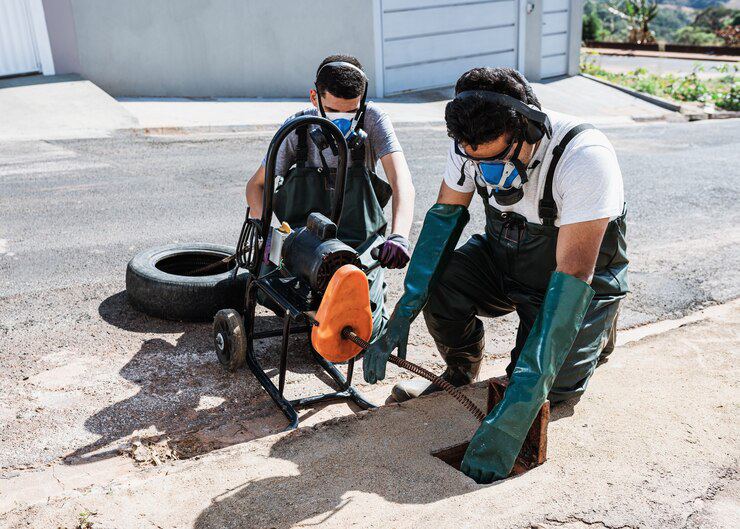Many of you don’t know about some extra charges in the real estate property and it is mandatory to pay these charges. CAM is one of them. If you want to know what is CAM in real estate, then read this article. I’ll tell you very simply what CAM in real estate is and how you can calculate your CAM. so. Let’s begin.
What Is Cam In Real Estate (Common Area Maintenance)?

Common Area Maintenance in commercial real estate is called CAM. CAM fees are monthly charges that tenants pay to their landlords for maintenance. These types of fees are sometimes called base maintenance fees that cover the cost of maintenance and other daily needs.
Common areas like lobbies, elevators, parking, corridors, common washrooms, and building security are covered under the CAM(common area maintenance). Even if you own a small portion of property you have to give the common area maintenance.
CAM charges could be a monthly fee or sometimes landlords collect it quarterly. The charges include Property maintenance, Insurance, Repairs, Administrative fees, Pest control services, Security services, etc.
CAM is also a legal thing so, sometimes you have to sign a legal paper where tenants and responsibilities are mentioned in the agreement. It is a well-written lease and accurate CAM calculations with a list of responsibilities. Now you understand what CAM is in real estate.
What Is Cam In Commercial Real Estate?

Some of you might ask What Is Cam In Commercial Real Estate? So, let me tell you that, in commercial real estate there is also a CAM for commercial real estate, and that CAM is the same as residential property.
There will be Lobbies, Elevators, Parking lots, Lawns, Corridors, Public bathrooms, and Building security maintenance fees. In commercial CAM, they applied one of these types of common area maintenance fees, either Fixed CAM or Variable CAM
Types Of CAM structures

Now you understand what is cam in real estate. However, there are multiple types of real estate CAMs in different situations. CAM structure depends on the property, expenses, and many other factors. In this article named ‘What is CAM in real estate’, I’ll show you the basic four types of CAM (Common Area Maintainance)structure.
1. Fixed CAM
In this CAMs do not vary there is no year-end audit or any CAM fee re-adjust. However, some exceptions are there.
2. Year-Over-Base Cumulative Cap
Unlike Fixed CAM these types of CAMs fee increase yearly. These types of common area maintenance fees’ are projected expenses on a cumulative basis.
3. Year-over-year cap
These CAM expenses are good for tenants as it capped on the CAM fee. It is based on the lesser of the prior year’s expenses.
4. Year-Over-Base Compounding Cap
It is an interesting common area maintenance fee structure because in the first 5 or 6 years. After that each year the CMS percentage increases at a compounding rate it is not a practical CMS structure because it favors the landlord.
CAM Charges Structure

CMA charges are calculated based on a “Pro-rata” basis which means the more land a tenant owns, the more CAM expenses are expected to be paid. In the US the expenses compare with the rate of your property and that could be as high as 10% to 45% of the total property space.
Previously you learned “what is a cam in real estate”, so now you can calculate your common area maintenance fee. Determine the area that you own then divide it by the gross leasable area.
For example, if you have 30,000 square feet and the gross leasable area is 100,000 square feet then you need to pay (30,000 / 100,000 = 0.3 x 100 = 30%) 30% CAM fees for the property.
What Are The Factors Excluded From CAM Expenses?

The answer to what is CAM in real estate you have learned for so long but you might wonder if any other charges are not counted under the CAM.
The answer is, yes some charges are excluded from the CAM fee. I’m providing you with the list. If your landlord includes them on your CAM agreement then you can take legal action against the landlord.
- Mortgage payments
- Leasing commissions
- Attorney fees
- Services conducted for a distinctive tenant
- Reimbursed repairs through insurance proceeds
- Ground lease rent
- Debt service payments
- Costs of casualty repair
- Costs of tenant improvements
- Capital expenditures (e.g., capital improvements, replacements, and repairs)
- Property tax and insurance
Frequently Asked Questions(FAQs):
A:- CAM stands for ‘common area maintenance’. This maintenance fee is paid by tenants to the landlord. Sometimes it is interchangeable and you can negotiate the maintenance fee.
A:- In the article, I told you about how you can calculate your CAM charges. All you have to do is just divide the area of your own by the gross leasable area.
A:- Whether it is a commercial property or residential property, you have to pay the ‘common area maintenance fees. In the US it can vary from 5% to 20%. And it can be increased by 3% yearly depending on the situation.
A:- Yes! Usually, there are some TDS in the CAM charges. The TDS is to be deducted at 2%.
A:- There are many charges in CAM including parking lot striping, parking lot lighting, Repairs, Administrative fees, Pest control services, Security services, etc. The chargers can be in two categories one is controllable and the other one is uncontrollable.s
CONCLUSION

In the end, you’ll understand what is cam in real estate. Not only residential but also commercial real estate needs to pay the CAM charges to the land owners including retail space, office space, and industrial space. If you want to know more about real estate hidden charges and want to explore more then you can follow our page. Or if you have any doubts, feel free to ask in the comment section.
Additional:
- 7 Things To Look For When Hiring A Real Estate Agency
- How Much Money Do You Need To Start A Real Estate Business?
- Toronto Real Estate Market – When Will Toronto Real Estate Market Crash


